
When looking to buy a franchise, one of the most common questions we get asked is "what is the best franchise in the UK?" We've mislead you slightly with the title of this step as there is no such answer! It is probably the same as asking: ‘what’s the best car to buy?’ There are so many points to consider, for instance: How much do you want spend? What type of roads will you be driving on? How many passengers will you take? Do you want a new car or a used one? Does the insurance premium matter?
Like when buying a car, there are many questions to answer before you can reach a shortlist of franchises to buy. The best franchise for you may not be the best franchise business for someone else.
In Step 3 we therefore look at how to choose the best franchise for you, including how to make sure you share the same values as the franchisor and how to identify a good franchise and avoid bad franchises. We also look at why franchises can fail and mistakes to avoid when buying a franchise. The British Franchise Association also gives advice on why choose a bfa franchise.
Finding the right franchise for you

Assessing the myriad of franchise opportunities that exist in the UK (and abroad) can be a daunting and frankly exhausting prospect. With more than 900 UK opportunities available, seemingly limitless choice can actually hinder your decision-making process - We’ve all sat on the sofa on a Friday night endlessly scrolling through the thousands of Netflix offerings, only to end up watching ‘Friends’ reruns yet again.
How then do we cut through the numbers, and shrink 900+ to one? And more importantly than that, the right one?
Research into franchise opportunities has never been easier. There is a plethora of online franchise portals, franchise exhibitions, magazines, webinars, discovery days and roadshows to benefit from. The best time to start this research is right now, but its important to follow a structured process of collecting information and comparing the opportunities that may fit best for you.
This article will deal with what I call the pre-decision making process, which will take you from 900 opportunities to less than ten. Part 2 will deal with how to compare and contrast the remaining opportunities to select the right business format for you.
Step one – What can you afford to invest?
All franchise opportunities will require a financial investment at the outset known as the ‘Franchise Fee’ or ‘Initial Investment’. This can range from as little as a few thousand pounds, to many hundreds of thousands. Its important then to understand your capacity to invest, which will be made up of liquid capital (money in your bank account) and borrowings (money borrowed from a bank or financial institution). Be honest with yourself about what you have, and what you can access – it Is very important not to stretch yourself.
Remove any franchises that do not fall into your financial bracket.
Step two – What do you need to earn?
We all have ‘costs of living’ to meet, and for the majority of potential franchisees their chosen franchise business will be providing the income to support these costs. At this point, its time to build a personal expenditure document. Write down all of your outgoings, starting with the major commitments (mortgage/rent, food, childcare, utilities, vehicles etc) and slowly move down to the smaller outgoings (treats, days out, etc) – remember to include all the equivalent costs for any dependants you may have.
Now add 25%.
For a business to support your standard of living, a 25% margin allows for increases in costs, but also unexpected additions. Don’t forget there is likely to be a gap between when your new business begins to operate and when in generates suitable income. You will need ‘working capital’ for this stage, which must be allowed for in your budget.
Remove any franchises that do not provide enough income to meet your needs.
Step three – Can I do it?
This may seem obvious, but its very easy to be sucked in by a glossy brochure and large earning potential. Make sure you do your research and thoroughly understand what the day-to-day requirements of you will be. Remember, franchise agreements are binding, and you will need to operate your business for a minimum of five years – that’s a long time to be committed to a daily task list that you don’t enjoy. Being self employed as part of a network should be a freeing experience, so make sure you will love what you do every day.
Remove any franchises that you cannot see yourself doing daily.
Step four – Owner/Operator or Management?
Franchise opportunities in the UK can be largely separated into two groups – Owner/Operator or Management. Owner/Operator are ‘doing’ franchises; the franchisee is actively involved in the day to day operation of the business, often being the only employee or worker within it – good examples of these business are Café 2U, Snack in a Box, and my very own Agency Express.
Management franchises require the franchisee to build a business of employees who will be ‘doing’. The franchisee will manage the business operations, and the staffing requirements but will be less involved in the end product – good examples here are McDonalds, Tax Assist, and Dream Doors.
Whilst there are franchise businesses that can be operated in both models, most will be focussed on one or the other – if you are unsure, simply ask the franchisor ‘are most of your franchisees owner operator, or management?
Decide if you want to be ‘doing’ or ‘managing’ and remove the franchises that don’t meet your needs.
Step five – Understand your acceptable level of risk
Different franchise opportunities will equate to different levels of risk. Established franchise networks that have been trading for many years, with stacks of franchisees around the country will offer a considerably lower level of risk BUT will likely mean spending more on your initial investment to access such an established brand. New franchise businesses will offer the chance to be an ‘early adopter’, and to be part of the team that shapes and forms a new network. They are likely to require less initial investment, and to have greater availability but this comes with the inherent risk of any new business – it could fail.
Remove any franchises that do not meet your acceptable level of risk.
Step six – Availability
Now your pot of franchise opportunities has been whittled down, its time to pick up the phone and ask one simple question – ‘do you have availability in my area?’. Not all franchises are territory based, but many are and if your chosen region already houses a happy, healthy and successful franchisee you may not be able to proceed with this brand.
Don’t be tempted to stretch how far you are willing to travel to offer the service or product; either your desired area is available, or it isn’t. Do remember to ask about resale opportunities; there may not be any ‘greenfield’ (industry term for cold start area) territories, but there may be an existing franchisee looking to sell their operation.
Remove any franchises that do not have availability in your area.
By now you should have a greatly reduced number of franchise opportunities to consider. Assuming you are down to 10 or less, the final step in this stage of the process is to list them in order of preference based on the information so far. Do this in a simple spreadsheet with columns for comparison of initial investment, availability, premises required etc. This will assist with your more detailed analysis in part 2 and highlight to you any gaps in your knowledge so far.
If your list of potential opportunities is still as long as your arm, then I would recommend starting again with much tighter parameters – remember to be strict and honest with yourself; there is no value in trying make a square peg fit a round hole.
Now our list is distilled to core options that meet our needs and wants, lets move on to part 2 – compare and contrasting your chosen few.
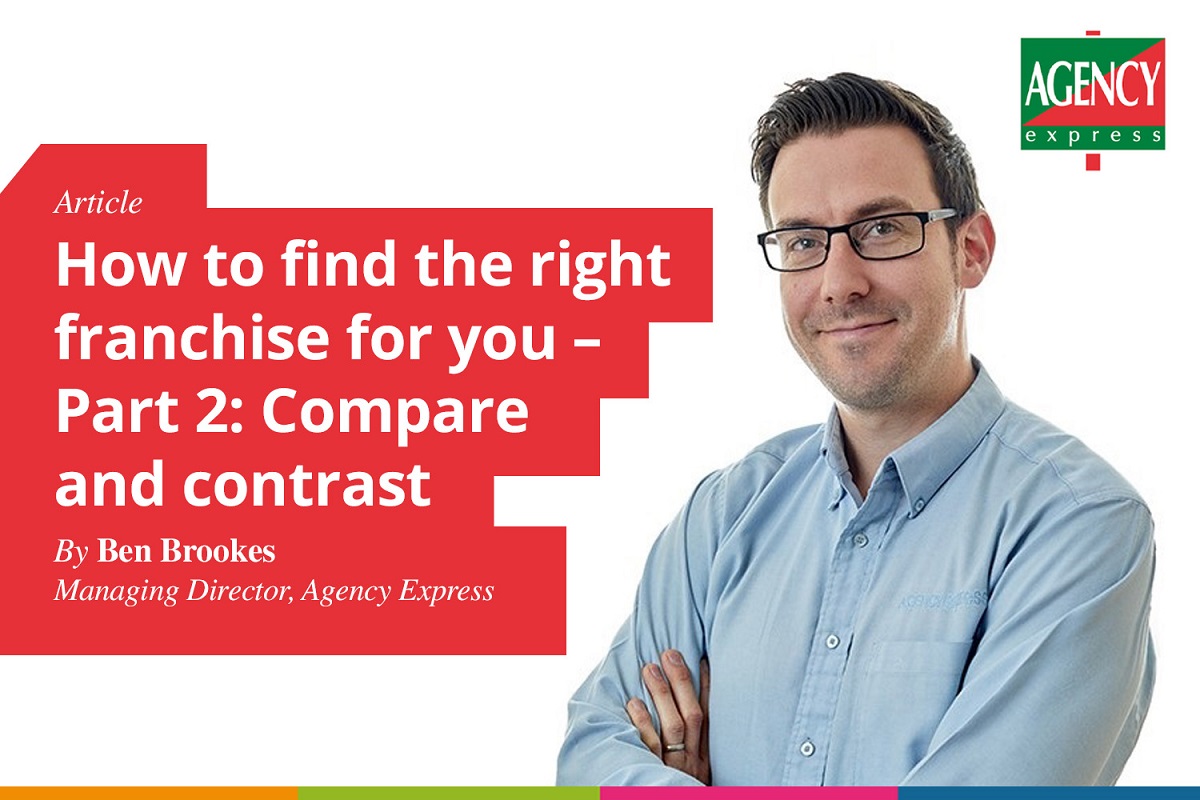
With our list of franchise opportunities more manageable, it’s time to delve into the detail and there is only one effective way to do this; get in touch with the franchisor directly. Pick up the phone and ask to speak with the franchise recruitment representative. Don’t be nervous, franchisors are very used to speaking with franchise prospectives with differing levels of knowledge and experience. Most franchisors will be happy to give you their time, and to answer any initial questions you may have.
Request a franchise prospectus. This should provide you with an outline of the model, potential earnings and expectations. Remember, this document is meant to be enticing so make sure you are pragmatic about its contents. Take some time to also go through the website, any reviews and testimonials available, and to make note of industry awards the franchisor has won.
To validate the quality of the franchise you are interested in there are certain core elements that should be present and easy for the franchisor to demonstrate to you. Assuming then the initial call is positive, its time to meet with them, and make sure all of these key elements are in place:
Proven business history – before any concept becomes a franchise, it must be a viable business first. This may be a pilot operation intended to become a franchise, or a successful stand-alone operation. Either way, you will be replicating this business, so ensure it exists, is successful, and the franchisor can evidence this to you.
- Proven established marketplace – There is no point having a great product/service if no one wants to buy it. Make sure you have investigated the market place your franchisor is operating in, and that there is a NEED rather than a WANT for your end user offering.
- Strong reputable brand - When you begin marketing your new franchise, will anyone know who you are? Is the brand recognisable to the core customer base you will be reaching out to? If not, what efforts is your franchisor making to change this?
- Effective training – You will shortly be replicating the business model of your chosen franchisor; what training are they going to provide initially, and ongoing? Your franchisor should be able to provide a detailed description of what training you will receive, on what elements of the business and in what format. Make sure you are satisfied this will meet your requirements.
- Ongoing support – Franchising is all about being in business for yourself, but not by yourself. What ongoing support mechanisms will your chosen franchisor be offering, and how regularly will you be able to access them? Support should be extensive, easily available and cover every element of your chosen business model. Make sure to ask if any additional charges can be incurred. Ask to meet the support staff, and quiz the franchisor about who will managing your onboarding process.
- Documented systems and controls – You will shortly be replicating a business model. For this, you will need instructions, do’s and don’ts, and a clear road map to success. This is known as the Franchise Manual, which will be a large written document that is regularly updated by the franchisor. The manual should be extensive and detailed, covering even minute details of the business operation. Make sure you ask to see the manual, which any franchisor should be happy to arrange.
- Management Service Fee – Your franchisor makes money by charging a fee for the support services they provide. This is normally by way of a percentage of turnover and should be clearly defined within the franchise agreement. Make sure you understand what this fee is and how it is calculated. It should be clearly indicated in any cashflow projections provided as well as any other additional costs you may experience from the Franchisor.
- Bfa Membership – Franchising in the UK is self-regulating. It is important therefore any franchisor you are considering can evidence they are a British Franchise Association member and meet the required code of ethics. This is a kitemark ensuring franchisees are treated fairly and ethically – any franchisor not a member should answer one simple question – why not?
- Security of tenure – your franchise agreement will have a term – usually 5 or 10 years – and during this term, you should be offered ‘security of tenure’. This means the franchisor cannot change your agreement terms, or remove you from the network without due cause. Termination details should be clearly outlined within the agreement, should be fair and reasonable, and inline with the Bfa ‘Code of Ethics’. Make sure your chosen franchisor can outline what securities they can provide and ask what (if any) examples of forced termination they have experienced.
- Method for resale – a core element of franchise ownership is the ability to resell the business in the future. Your franchisor should have a clearly defined process for franchisees wishing to exit the network, along with examples of successful franchise resale exits. Make sure you understand any costs involved in the resale process, and any restrictions you may experience after (known as restrictive covenants). The asset that you will build is core to the value your franchisor can provide – make sure you don’t forget this often-overlooked step.
- USPs – USP stands for Unique Selling Point - What separates this franchisor from others? Why would the end user choose this business over any other? It is important you are investing into a brand that offers a unique and enticing proposition for their customers. The franchisor should be able to explain their USPs and how they market them.
- Access to funding – Most franchisees will require finance to support the launch of their new business. Good franchisors will already have established relationships with major finance lenders, and should be able to explain the application process to you. Once your decision is made they will be happy to review your business plan finance application before its formal submission. Any franchisor unable to access finance terms should be avoided.
Whilst this list is not exhaustive, it covers the most important parts of any franchise business. Any franchisor worth investing in should tick all of these boxes and be able to demonstrate the application within their business. Your head may well be spinning after this meeting, so make sure you take notes, and refer back to them throughout the due diligence process.
The franchisor will now provide you with an additional pack of information. This should include a copy of the franchise agreement, cash flow projections, details of training and the next steps you will need to follow to become a franchisee.
Seeking external advice
By now you will most likely have a favourite. Its time then to seek external advice to ensure you are making a balanced decision.
Franchise Solicitor – I would always recommend asking a solicitor to review the franchise agreement you are about to enter into. They will provide impartial advice, highlighting any clauses that may be overly restrictive or weighted to the franchisor. The fee for this service is usually between £750 and £1000. There is a helpful list available on the Bfa website.
Accountant – Especially important if you are considering a resale business. An accountant will be able to objectively question the numbers, and provide guidance on when you will break even and become profitable. Fees will vary, but should not be prohibitive.
Spouse/Family – If your spouse isn’t onboard, your core support network is comprised. They should be your biggest cheerleader, able to offer comfort and support on the tougher days. Running a business is challenging even for the best franchisees, and its important the spouse of the franchisee is as invested personally in the business success.
Other franchisees – The franchisor should encourage you to speak to other franchisees within the network. Speak with a minimum of three and listen to their experiences. Does this match with what the franchisor has told you? The most important question to ask is simple; ‘Given what you know now, would you do it again’?
At this stage, you should have all the information you need to make an informed decision about your franchisor.
Remember, you should only proceed if you are 100% sure that all of your questions have been answered and the business meets your needs and wants – if you aren’t at 100%, then go back to the franchisor and ask for further clarity. There should be no pressure from the franchisor at any stage, and you should feel in control, excited and driven to succeed by the time the ink finds the page of the franchise agreement.
Finally, remember franchising works! Many thousands of franchisees have gone before you with hundreds of franchisors and have realised the dream of business ownership. Best of luck in your search!
Finding a franchisor who shares your values

Starting your own franchised business will require hard work and determination. Support and training from your franchisor will ensure you hit the ground running. But what happens if you find you want to run in different directions? Here, making sure values are aligned from the outset is important.
Let me tell you a story. I’ve worked in franchising for many years. For one former franchisor, I was tasked with interviewing franchisees who were leaving the business. This exit interview was designed to uncover any issues with the system and identify areas which could be improved. One franchisee was going after being a franchised estate agent for 20 years. I asked him why he had decided to pull out of a successful business. The answer was simple: “I’ve never liked dealing with the general public.”
At the time, it was a real eye opener! But also a valuable lesson, which I’ve always instilled into new franchisees. You must like what you do!
If a franchise’s values are all about providing the best customer service, then you will need to enjoy working with people, genuinely. For an estate agency franchise, you are dealing with people, often through some of the most stressful times of their lives and you must have a passion and drive for making that process as smooth and pain-free as possible.
Before committing to any franchise opportunity, you need to be true to yourself. Consider what values are important to you and understand what you both enjoy, and thrive doing.
In the property sector particularly, being available to talk to customers out of normal 9-5 working hours is necessary. Providing that ‘above and beyond’ service is what will set you apart. Any skill can be taught but if you don’t enjoy the job, it will be reflected in the quality of your work and the likely success of your franchise. Authenticity is important as it means you are genuine in your sentiment and customers can spot someone faking it from a mile away!
You must also like what you do day to day. Often franchisees will select a franchise because it’s something totally different. They say they were ‘looking for a change’. However, there should be a ‘spark’ or an interest in the sector. Often in property, we see prospective franchisees whose sole experience is limited to selling a house ten years ago. Invariably, they were unimpressed with the agent at the time, paid a lot for their services, and think they could do a better job. However, they only find out what the role really entails further down the line. Make sure you do your research, and are really interested in your chosen sector before making a commitment. This passion will see you through during the tougher times.
Aligning values in terms of the company culture and structure of your prospective franchisor is also often overlooked. Some franchises are very ‘corporate’ in the way they are run. For those aiming to escape from years working in the corporate world, this may be off-putting. Others, like Propertynest are small, family run businesses where we are invested in the success of each and every one of our franchisees. We have an open and flat structure, decision making processes and lines of communication. Neither set up is wrong or right, they will just suit different people.
Be honest with yourself about the type of environment you work best in, because if you are at odds with this, it could become a challenge for both you and your franchisor.
Technology can also be an issue for some people. If you are a self-confessed technophobe, then joining a modern franchise which has digitalised all processes for maximum efficiency, will present a steep learning curve. As I said before, any skill can be taught, but consider if you will be truly comfortable in this type of environment?
Company direction in terms of where you would like to take your own franchised business needs to be aligned with your franchisor’s view too. How ambitious are you? Will you want to build the franchise and sell in five years, or do you have a long-term view and want to leave a legacy for your children? Make sure you are on the same page as your prospective franchisor early on, so they can better support you with your goal.
From the business perspective of the franchisor, consider how ambitious the company is. Does this match with your own values? I’ve seen franchisors putting pressure on franchisees to grow their operations when they were already happy with the size of the business they were running. This made them uncomfortable, so be sure to have open and honest discussions with your franchisor about future plans.
Whatever franchise opportunity you ultimately decide to pursue, take some time to ensure your values are aligned with those of the franchisor, and you know precisely what the role entails. This will mean you know what you are taking on, and you are far more likely to be successful in your new career.
Paul Sheard, National Business Development & Training Manager, Propertynest has over 40 years’ experience and is well known in the property industry. He has worked with and helped grow some the sector’s most recognised franchised brands including Countrywide and EweMove.
What Makes a Successful Franchisor-Franchisee Relationship?

In the world of franchising, the relationship between franchisor and franchisee is the cornerstone of success. Like any partnership, it requires mutual understanding, clear communication, and shared goals.
But what exactly makes this relationship thrive? Let's delve into the key elements that contribute to a successful franchisor-franchisee dynamic.
1. Clear Expectations and Open Communication
From day one, both parties should have a crystal-clear understanding of their roles, responsibilities, and expectations.
The franchisor must provide comprehensive documentation, including the franchise agreement and operations manual, outlining every aspect of the business relationship.
But it doesn't stop there.
Ongoing, open communication is vital. Regular check-ins, updates, and a willingness to address concerns promptly can prevent small issues from snowballing into major problems.
Franchisors should create multiple channels for franchisees to reach out, whether through dedicated support lines, online portals, or regular meetings.
2. Comprehensive Training and Support
A successful franchisor understands that their franchisees' success is their own success.
This means providing thorough initial training and ongoing support. From operational procedures to marketing strategies, franchisees should feel equipped to run their business effectively.
But support goes beyond just the basics.
The best franchisors offer continuous learning opportunities, keeping franchisees updated on industry trends, new technologies, and evolving best practices.
This commitment to education fosters a culture of growth and innovation within the franchise system.
3. Balancing Control and Autonomy
One of the trickiest aspects of the franchisor-franchisee relationship is striking the right balance between maintaining brand consistency and allowing franchisees some degree of autonomy.
While franchisors need to protect their brand and ensure quality standards, successful systems also recognise the value of local market knowledge and entrepreneurial spirit.
Franchisors can achieve this balance by setting clear, non-negotiable standards for core brand elements while allowing flexibility in areas that benefit from local adaptation.
This approach empowers franchisees to feel like true business owners while safeguarding the overall brand integrity.
4. Mutual Respect and Trust
Trust is the foundation of any strong relationship, and the franchisor-franchisee dynamic is no exception.
Franchisors must demonstrate trustworthiness through transparent business practices, fair policies, and consistent support.
Equally, franchisees need to trust in the system and follow established procedures.
Respect goes hand in hand with trust. Successful franchisors value their franchisees' input, recognising that those on the front lines often have valuable insights into customer needs and market trends.
Creating forums for franchisee feedback and seriously considering their suggestions can lead to system-wide improvements and innovations.
5. Aligned Goals and Shared Success
When both franchisor and franchisee are working towards the same objectives, magic happens.
This alignment starts with clear communication of the brand's vision and values, ensuring that franchisees buy into the bigger picture.
Successful franchise systems often implement programs that tie the franchisor's success directly to that of their franchisees.
This could involve profit-sharing schemes, performance-based incentives, or collaborative marketing funds. When everyone has a stake in the overall success of the brand, it fosters a true sense of partnership.
6. Adaptability and Innovation
The business world is constantly evolving, and successful franchise relationships are those that can adapt to change.
Franchisors need to stay ahead of industry trends and be willing to evolve their systems and offerings. This might mean updating technology, refreshing the brand image, or introducing new products or services.
However, innovation shouldn't be a top-down process.
The best franchisors create an environment where franchisees feel empowered to suggest improvements and experiment within agreed-upon parameters. This collaborative approach to innovation can lead to breakthroughs that benefit the entire system.
7. Conflict Resolution Mechanisms
Even in the best relationships, disagreements can arise.
What sets successful franchisor-franchisee partnerships apart is how they handle these conflicts. Having clear, fair, and efficient dispute resolution processes in place is crucial.
This might include mediation services, franchisee advisory councils, or other formal channels for addressing grievances.
The key is to approach conflicts with a problem-solving mindset, focusing on finding mutually beneficial solutions rather than assigning blame.
In conclusion, a successful franchisor-franchisee relationship is built on a foundation of clear communication, mutual respect, and shared goals.
It requires ongoing effort from both parties, a commitment to continuous improvement, and the flexibility to adapt to changing circumstances.
When these elements come together, the result is a powerful partnership that drives growth, innovation, and success for the entire franchise system.
From investment to involvement: selecting the right franchise type for you

When considering venturing into a franchise business, it’s crucial to choose a model that aligns with your business goals, skills, and the level of involvement you desire. Two popular models are the owner-operator and management franchise models.
Understanding these key differences and assessing your own capabilities and requirements can significantly influence your success and satisfaction as a franchise owner. Deciding whether an owner-operator franchise or a management franchise is the best fit for you depends on several factors, including your personal preferences, abilities, and investment capacity. Here, Paul Edwards, Managing Director of GreenThumb, explores the different concepts to help you consider which might suit you better.
Owner-operator franchise
If you’re looking to make a career change and start a business while minimising some of the risks associated with entrepreneurship, then the owner-operator franchise model could be a compelling pathway for you. This model, where the franchisee owns and operates their location, combines the independence of owning a business with the structure and support of a franchising system.
With the help and support of the franchisor, you will be able to confidently manage and grow your business as well as build a rewarding career with a financial upside, all while being actively involved in the day-to-day operations of the business. You will also be expected to work in the business full time and be hands-on, while managing staff, overseeing service delivery, and ensuring customer satisfaction.
The owner-operator franchise model offers a unique blend of business independence with structured support, making it an attractive option for many prospective business owners. With the benefits of brand strength, comprehensive support, reduced risk, operational autonomy, and a supportive network, this model may be more suited to those who prefer hands-on management and direct interaction with the business and customers.
There is typically a lower cost of entry for an owner-operator franchise model, as these franchises often require less capital upfront compared to management franchises. This is because they involve smaller-scale operations or start-ups with fewer staff, but they will have a huge opportunity to grow the business themselves.
Franchisees will also often benefit from building personal relationships with customers, which can enhance customer loyalty and business reputation, and you will have direct control over every aspect of the business, from hiring to customer service.
Management franchise
When a management franchise is awarded to a franchisee, the understanding is that the franchisee will operate it diligently to ensure its success. Although they may not be involved in day-to-day operations, franchisees are expected to actively participate in both the growth and management of the business and take on a more supervisory role, focusing on the bigger picture rather than on daily tasks. At GreenThumb, we take the same approach predominantly and look for people who can manage and grow a team, and if buying a resale, they can continue to grow the existing business, taking it to the next level.
A management franchisee typically immerses themselves in the business to gain a comprehensive understanding of its operations and identify best management practices. This involves spending a period of time, sometimes up to a year, working within the business before transitioning to focus on strategic management. It’s crucial for franchisees to grasp the franchisor’s vision and strategy, as these elements define the successful business model they are adopting.
Additionally, management franchisees are expected to learn how the business functions at every level. For example, it is well known that a McDonald’s franchisee will perform every role in the restaurant before they can advance to managing or owning the establishment. This hands-on experience is essential in most management franchises, requiring franchisees to engage deeply with the business’s daily operations.
A management franchise is ideal for those who prefer a strategic role rather than day-to-day management, or for investors looking to expand their portfolio without daily operational responsibilities. They are also perfectly suited as resales because of their structure, with the staff continuing to perform the day-to-day operations when the ownership changes, enabling the new owner to make a profit from day one if the business is already successfully trading.
Kevin Flavell of GreenThumb Manchester North is just one example in our network who bought a resale almost 10 years ago. With a background in the police force, he wanted to invest in a management franchise that allowed him to hit the ground running, while using his transferable people and business skills from his previous career. Once he had done his due diligence and spoken to several other GreenThumb franchise partners in the network, he felt this was the brand that aligned with his values and aspirations, and more importantly he could make a success of it. Since the start of his journey with GreenThumb, Kevin’s job has been to grow rather than establish his business in his local area.
Success does, however, rely heavily on the competence and reliability of the management team, and you may feel you have less hands-on control and disconnected from everyday customer interactions and immediate business operations. There is typically a higher cost of entry for a management franchise model, as the franchises are more established, particularly if a resale.
Recognising your own goals, capabilities, and expectations will help you determine which type of franchise model will align best with your entrepreneurial aspirations. Whether you choose to invest in an owner–operator franchise or a management franchise, they will both provide a gateway to achieving business success with a safety net that few other entrepreneurial ventures can offer.
Key considerations when choosing your franchise
In this article, Edward Mauleverer, of Ed’s Garden Maintenance, has the following to say regarding important things to consider when choosing which the right franchise for you.
“The Franchise business has really taken off in the UK in recent years and there is a vast range of franchise offers available. Joining a franchise is not a decision that should be taken lightly - people invest considerable sums of money and enter contracts that are typically around five years’ duration.
It is very important that investors approach their decision-making in a thorough way – they are much more likely to be happy and successful in the long run.
There is clearly a whole range of things to consider when buying a franchise. However, the following considerations are of critical importance and should always be taken into account when making such an important decision about your future:-
Remember the service that’s at the core of the business
Don’t be seduced purely by the earnings potential. Clearly, the financials are important but equally as important is the fact that you will be delivering the service of the business you are investing in day in day out and it is very likely that you will be more successful doing something you enjoy. Many of our franchisees come to us because they either love gardening or a healthy outdoors lifestyle and they rarely change their views on this. Don’t make the mistake of signing up for something that you won’t enjoy .
Do your homework and shop around
Don’t make the mistake of thinking that all franchises are the same. They are all very different - from their fee structure right through to the culture of the specific business. Make sure you take enough time to understand all of this. At Ed’s we actively encourage potential franchisees to look at other franchises - we would much rather be selected for compatibility reasons than to just be the first franchise option someone stumbled on.
Take your time to find out about other franchisees in the business
Don't just find out about how much money they earn but how they feel about what they are doing, the key challenges they faced etc. Find out how many of them sign for a second term. It is true that franchisees are very busy running their own businesses and can’t be spending all their time meeting potential franchisees.
However, it is very valuable to be able to speak to established franchisees to help you to make your decision - after all, they were in your shoes not that long ago. You shouldn’t feel embarrassed to ask for this access. At Ed’s we actively encourage prospective franchisees to go out with established franchisees and they have carte blanche to ask whatever they like. This gives a great insight into what it’s all about without any ‘hard sell’ tactics. We would much rather people signed up with their eyes open wide.
Try to see beyond the marketing of a franchise and understand how supportive franchisors really are
Try to get a good feel for the quality of the initial training. A good indicator of franchisor professionalism and their long-term commitment to the success and wellbeing of the franchisee, is their commitment to ongoing support and training. At Ed’s we do continuous business coaching and also invest a lot of time and money on ongoing training. In our view it is money very well spent.
Take your time to think things over properly once you have all the information you need
We actively discourage people from signing up impulsively and always send them away to think it over. A good franchisor will want you to have made an informed sensible decision to join, having reflected properly rather than making an on the spot decision. It is also a very good idea to take a partner or friend along when you go to meet the franchisor. It is invaluable to have someone to discuss the option with afterwards.
Take professional advice
Always get a legal professional to go through the contract before signing anything. Remember that the devil can be in the detail.
Finally, trust your gut instinct
If something niggles and tells you that a particular option isn’t right for you, then it probably isn’t. The same applies to when an option feels right – however even then, make sure you back your gut feeling up with solid research and side by side comparison!”
Why choose a bfa franchise?
Starting a franchise business is not a decision to be taken lightly. It requires a serious investment of time, emotion and, potentially, capital. If you’ve ever read or heard advice from somebody qualified to give it, they’ll rightly tell you it’s something you should take your time with and research carefully.
Part of that research should involve a brand’s British Franchise Association membership status. The bfa is the body that protects and promotes good franchising practice in the UK and is recognised nationally and internationally for its ethics, standards and credibility.
So what does that status mean to you as a prospective franchisee, and why should you consider membership to be a powerful indicator and one you should actively seek?
Not all franchises are equal
First, it’s important to note that membership of the bfa is not achieved simply by paying a subscription fee. The bfa is strictly based on standards of good franchising, and has been since its formation in 1977. If a franchisor can’t meet those standards, then it cannot join: each year, companies have applications refused.
Membership is only granted following an in-depth examination of the franchise model and the business’s proven performance.
Among many other aspects, the accreditation team looks at the company’s franchise agreement, its marketing collateral, accounts history and, where appropriate, it asks existing franchisees for confidential feedback on their experience in the network.
Favourable funding
The banks involved in franchising all respect the standards represented by the bfa. They understand the accreditation process and the quality needed to gain and retain it, and therefore look more favourably on funding applications from franchisees of those brands.
Help in your research
As well as supplying the information that’s required to pass accreditation, bfa member franchisors adhere to the guidelines in the Code of Ethics and the Rules of Membership, which enshrine the principles of best practice in franchising. For you, that means the projections you’re given on the level of turnover and profit you can achieve as a franchisee should be based on historically achieved numbers – either by another franchisee or a company-owned outlet – with proof available.
It also means you should be given the chance to speak with franchisees already trading in the brand, a crucial part of your research into the business.
Planning ahead: it’s good for your business
A couple of points that are easily overlooked come later down the line in your franchise journey, but are worth bearing in mind from the outset.
When it’s time to renew your franchise agreement, bfa rules state that any renewal fees should not be a profit-making opportunity for the franchisor – rather, they should simply cover any associated administrative costs.
Second, when the time is right for you to sell the business, being part of a member franchise can help you maximise its value, because a credible brand is worth more to a buyer.
Franchisees can join – and their voice is heard
Franchisees of bfa members can join the Association themselves for £10 per month, accessing a host of business and personal benefits that make membership cost-neutral (or better).
Legal, HR and business support combines with deals on everything from car hire to shopping to holidays.
And with that membership comes the opportunity of representation. Three franchisees sit on the bfa’s board of directors, and many more on the committees that govern its future direction. This year a franchisee will chair one of those committees.
The bfa speaks for all stakeholders in franchising, and listens to what they have to say.
And finally…
Membership of the bfa is not a guarantee of franchisee success: starting any business comes with risks and becoming a successful franchisee depends on many factors, not least your own passion, the right match and your work ethic. Your due diligence is critical before signing any contract.
What membership does show is a franchisor that says: “We’re proud of our franchise model and how we support our franchisees and have chosen to put it up against the toughest industry standards to affirm that.” And one that has been vetted by a third party.
Isn’t that the kind of franchise worthy of your time and effort?
The bfa holds an up-to-the-minute list of all members on its website – make sure you check there if a brand is claiming membership.
The benefits of being a company's first franchisee
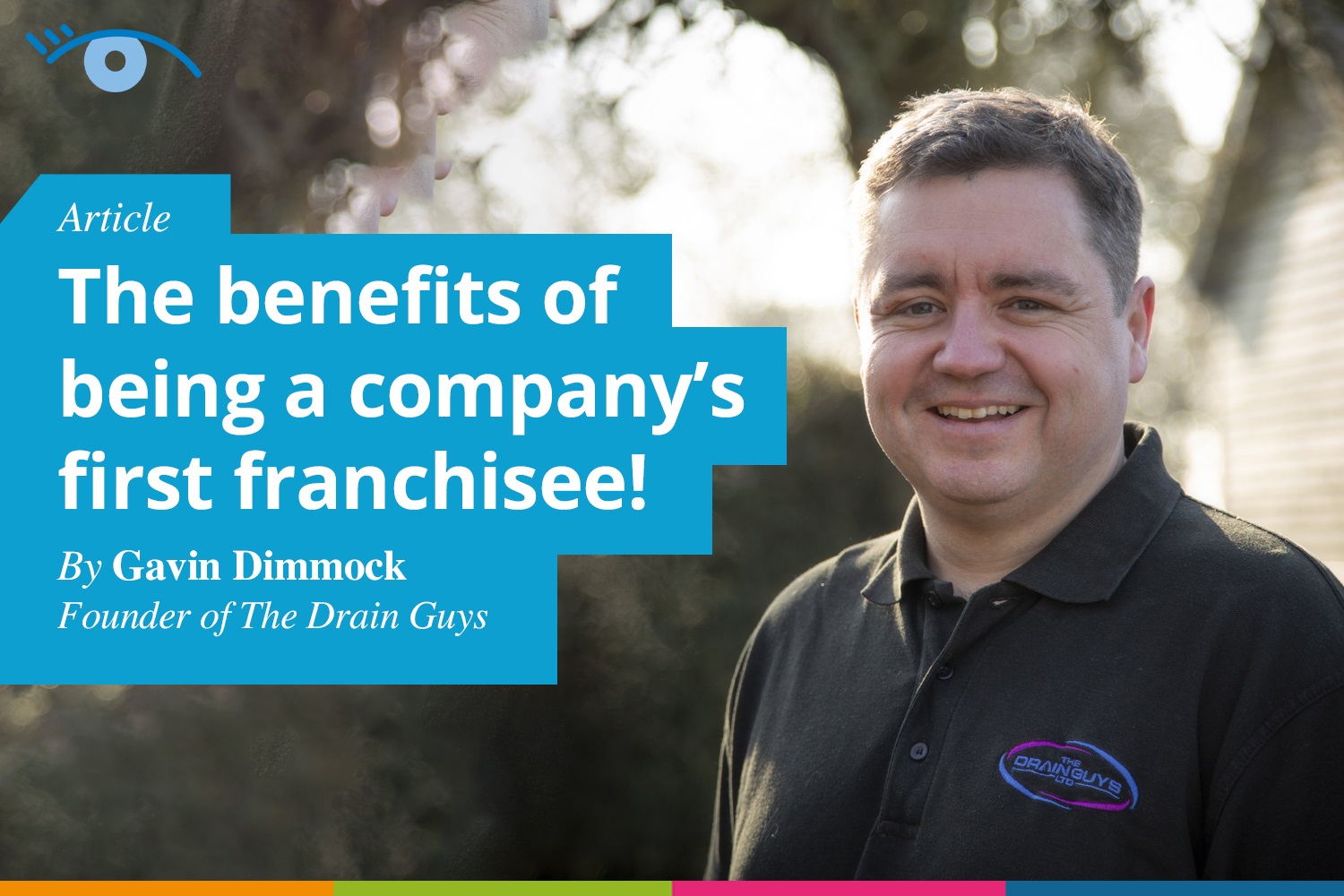
In every franchise network, there is someone who has led the way for others, the pioneering franchisee! The individual who took the leap and bought into the challenge, and excitement, of being the company’s first franchisee.
However, that leap shouldn’t be into the unknown. If it is an ethical franchise, the model should be a proven concept, developed by a business with many years of successful trading under its belt.
Here at The Drain Guys, we’ve been successfully running our drainage company since 2015, and prior to this, I was a franchisee for a national drainage brand. Drainage is something I know inside and out. In 2022, due to an increasing demand for our services outside of our local area, I decide to franchise the business. So, whilst we are new to franchising, we are not new to drainage and have a very successful model that we are now ready to share with likeminded individuals.
Whilst buying into a new franchise may not be something you initially think about when researching opportunities, as many prospective franchisees are drawn to brands they know or ones they have researched and are shown to have a proven track record in franchising, being the first franchisee in a network can have many benefits.
Firstly, there is the opportunity to provide input and feedback to the franchisor on how the business should be run, giving you more influence in shaping the direction of the franchise and driving the growth of the business.
As the first franchisee you should have access to a more affordable / lower fee structure. As the franchise develops and more training and support is needed for the network, it is in evitable that the fees will be increased to support this.
You will tend to receive more personalised support from the franchisor as they will want to make sure that you are receiving sufficient training and support to get your business up and running and trading successfully, helping to encourage others to join the network. You will be the benchmark for all franchisees who join after you.
There is greater potential for success, because as the business develops, you will develop with it. There may be opportunities to expand and take on new territories.
And it is exciting to be known as the company’s first franchisee, the one who identified the opportunity and grasped it with both hands. McDonald’s first franchisee was a gentleman called Neil Fox. Neil took the gamble and bought the rights to open the first McDonalds franchise in 1953 for $1000. He has ultimately led the way for the 38,000 restaurants operating worldwide today.
At The Drain Guys we are looking for our first franchisee, our very own Neil Fox. We are looking for like-minded individuals who want to start our franchise journey with us.
7 Critical Mistakes to Avoid When Buying a Franchise
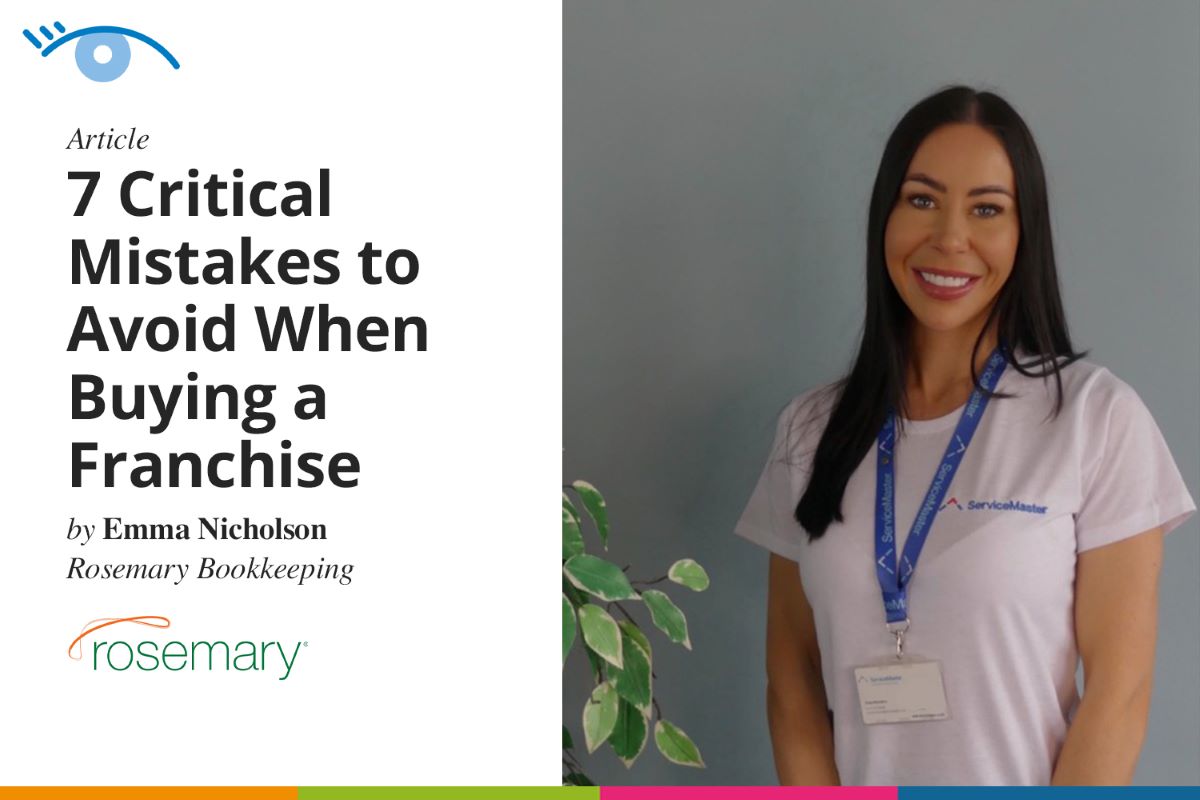
Investing in a franchise can be an exciting path to business ownership, offering a proven business model and established brand recognition.
However, the road to franchise success is paved with potential pitfalls.
To help you navigate this journey successfully, we've compiled a list of seven critical mistakes to avoid when buying a franchise.
1. Rushing the Decision
One of the most common mistakes prospective franchisees make is rushing into a decision without proper due diligence.
The allure of being your own boss can be strong, but it's crucial to take your time and thoroughly research the franchise opportunity.
Spend ample time reviewing the Franchise Agreement and any other documentation, speaking with current and former franchisees, and understanding the day-to-day operations of the business.
Remember, this is a significant investment of your time and money – it's worth taking a few extra months to ensure you're making the right choice.
2. Underestimating the Financial Commitment
Many aspiring franchisees focus solely on the initial franchise fee, overlooking the total investment required to get the business up and running.
Beyond the franchise fee, you'll need to consider costs such as property, equipment, inventory, working capital, and ongoing royalty fees.
Create a comprehensive business plan that accounts for all potential expenses, including a cushion for unexpected costs.
Be realistic about how long it might take to become profitable, and ensure you have sufficient capital to sustain the business during the initial growth phase.
3. Choosing a Franchise Based on Personal Interests Alone
While it's important to have an interest in your chosen industry, basing your decision solely on personal passions can lead to disappointment.
A franchise that aligns with your hobbies might seem appealing, but it's crucial to evaluate the business potential objectively.
Instead, focus on factors such as market demand, competition, profit margins, and growth potential.
Look for a franchise that not only interests you but also has a strong track record of success and aligns with your skills and business goals.
4. Neglecting to Verify Franchisor Claims
Franchisors often paint an attractive picture of their business opportunity, but it's essential to verify their claims independently.
Don't take marketing materials or projections at face value – dig deeper to understand the reality of the franchise system.
Review the franchisor's history, speak with multiple franchisees about their experiences, and consult with a franchise solicitor to interpret the Franchise Agreement.
Be wary of any franchisor that makes guarantees about earnings or seems reluctant to provide detailed information about their system.
5. Overlooking the Importance of Location
For many franchises, location can make or break the business.
Some prospective franchisees make the mistake of choosing a location based on convenience or lower costs, rather than optimal business potential.
Work closely with the franchisor to understand their site selection criteria and leverage their expertise in choosing a location.
Consider factors such as foot traffic, visibility, parking, and proximity to your target market.
Remember, a great location might cost more upfront but can pay dividends in the long run.
6. Failing to Understand the Franchise Agreement
The franchise agreement is a legally binding document that outlines your rights and obligations as a franchisee.
Many prospective franchisees make the mistake of not fully understanding this agreement before signing.
Invest in professional help – hire a franchise solicitor to review the agreement and explain its implications.
Pay close attention to clauses regarding territory rights, renewal terms, exit strategies, and dispute resolution.
Understanding your commitments and limitations upfront can save you from potential headaches down the road.
7. Underestimating the Value of Support and Training
One of the key benefits of joining a franchise system is the support and training provided by the franchisor.
However, some franchisees underestimate the importance of this support or fail to take full advantage of it.
Before committing to a franchise, thoroughly evaluate the franchisor's training program and ongoing support systems. Speak with current franchisees about the quality and accessibility of support.
Remember, a strong support system can be invaluable, especially in the early stages of your business.
In conclusion, buying a franchise can be a rewarding venture, but it requires careful consideration and due diligence.
By avoiding these common mistakes, you'll be better positioned to make an informed decision and increase your chances of success as a franchisee.
Remember, thorough research, professional guidance, and a realistic understanding of the commitment involved are your best tools in navigating the world of franchise ownership.
Why a franchise can fail
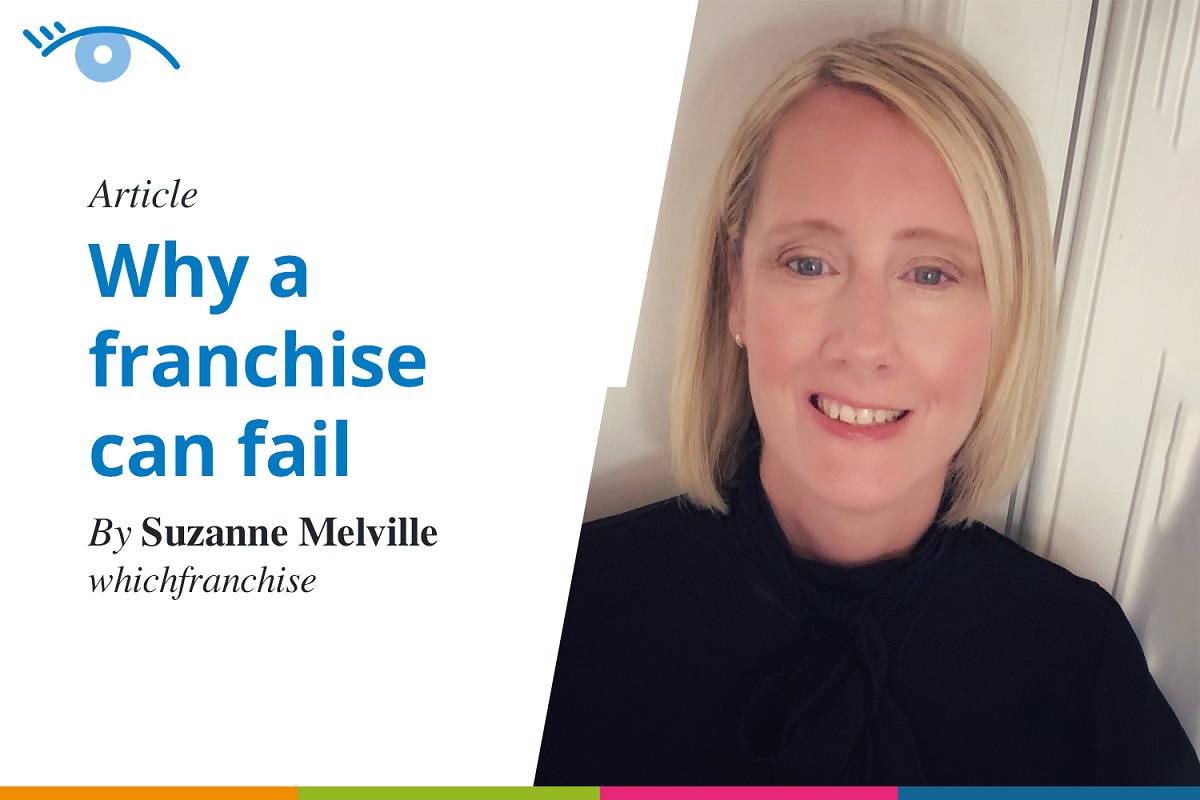
Despite franchising being a safer way of doing business, it does not mean that it is risk free. Many franchises have failed in the past and many will do so in the future.
There are many reasons why this can happen and so it is vital that you undertake as much research as possible when looking to buy a franchise business in order to find the right franchise for you and to help you spot a bad franchise from a good franchise.
Below are some of the reasons why franchises can fail:
Lack off/no systems in the business
Franchising is all about systems; being able to replicate systems is what makes a business franchiseable. An ethical franchise has everything documented and systemized so that it can easily be passed on to others to copy.
If a business has no systems and instead relies solely on the skills of the individuals within the business, then it should not be franchised. Some businesses however will ignore this and start to franchise their business anyway. These companies are usually only interested in making money fast. Once they sell the franchise to someone who doesn’t have the required skills, then it fails as there is no systems for the franchisee to follow.
A good franchise can usually take someone with no skills or experience in their business and train them to run a successful business by following their systems.
No track record
A business can only be franchised if it has a track record. We are amazed at the amount of people who tell us that they have an idea for a franchise but don’t actually have a business! The business comes first; it is not conceived at the same time as the franchise.
Those usually wishing to start a franchise without having a business are people who are looking to make money fast and think franchising can help them do that. Unfortunately sometimes these people convince others that it is a franchise resulting in them buying into it. This is why it is important that you know all there is to know about franchising and how to spot a bad franchise from a good franchise.
Make sure that the franchisor has an established track record of running a business foremost and then their track record in franchising. They may be new to franchising but if they have been running a successful business then there is no reason why they can’t also run a successful franchise if their business is franchiseable.
Location, location, location
This saying is not just associated with buying a house, but it is also essential when buying a franchise. Half the battle of a successful franchise is finding the right location for your business.
Not all franchisees need to be in a city center location or in a shopping mall, it depends on the nature of your business, but if you wanting to buy a food franchise that relies on footfall then you need to find a prime location for it.
A good franchisor will spend time finding the right location for you.
Lack of marketing
Good franchisors will spend money on promoting the brand nationally as well as locally.
Smaller and newer franchises with less brand awareness will require additional marketing and so the franchisor should have a detailed marketing plan in place. Ask the franchisor about their marketing activities and what they do to gain recognition and awareness.
If the franchisor does not have a marketing plan then this could be worrying as how else will they create awareness to the brand.
One of the advantages of marketing by the franchisor is that the franchisees benefit from the joint activities, without marketing then they just become like independents. A good franchisor will contribute some of the money they get from selling a franchise to a marketing fund to be used on local as well as national marketing.
A franchisor that is just out to make money and not concerned about the business long-term will not be willing to put money towards marketing.
Competition
Check out what the competition is for the franchise in your local market. If there is no competition then there may not be a demand for the product, resulting in it not having much future market potential.
Look into why there is no direct competition. Also check if the franchise is operating in any areas with similar demographics to your own, if so, is it successful?
If there is a lot of competition then you may have a problem gaining a share of the market. You have to look at if the franchise has any USPs that gives it a competitive advantage.
If your product/service is inferior to what you competitors are offering then you may struggle in the market. Again look at markets similar to yours in which the franchise is operating to see how well it is doing.
Insufficient funds
One of the biggest reasons franchises fail is the franchisee under-estimating how much it is to buy a franchise and also run a franchise, as it is not just about having the money for the investment, but what about the costs you are going to incur when running the business? How do you pay staff salaries? How do you buy supplies?
If your franchise business is not making money initially, you need to make sure you have enough money for the day to day operating costs.
At the same time you need to also be able to pay your own bills and feed your family. Over-estimating what you need is the best way of approaching calculating how much money you will need to cover the cost to buy a franchise and run it successfully.
How to Choose a Food Franchise
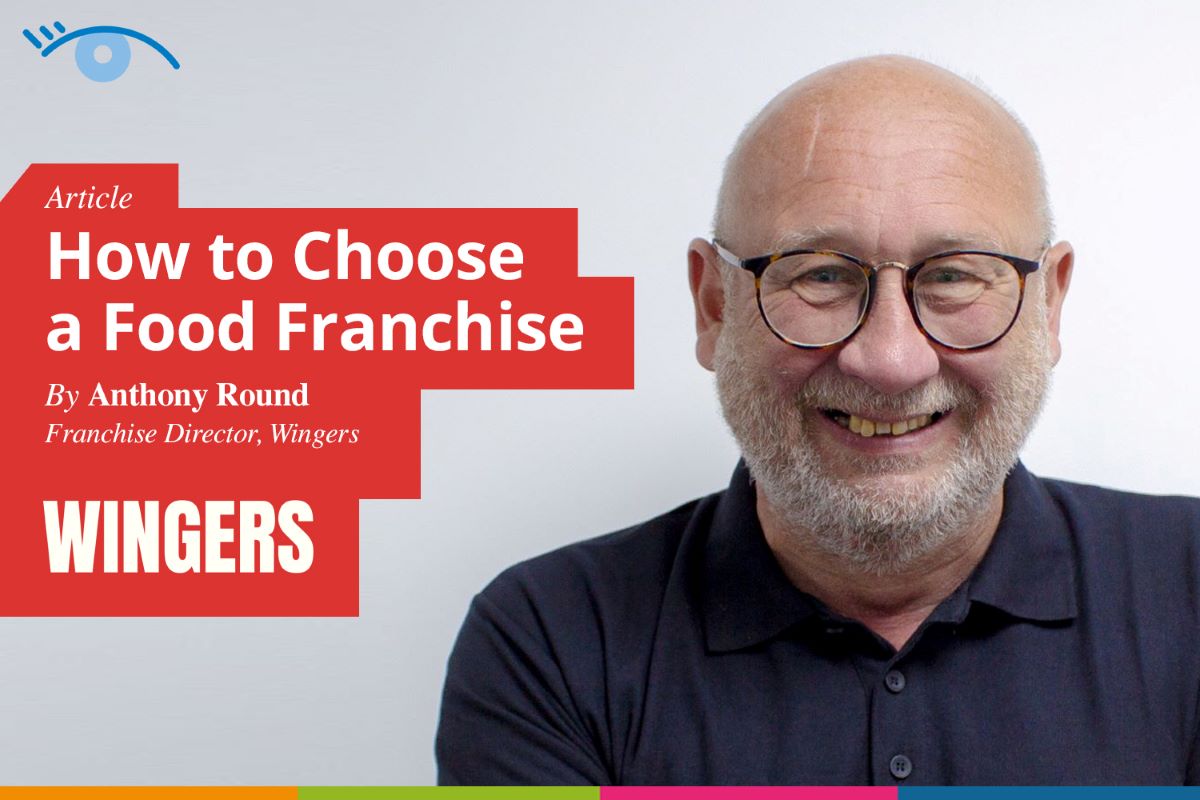
What do the most successful Food Franchises have in common?
I’ve worked in the QSR (quick service restaurant) sector for around 30 years, and over that time have worked directly with at least ten food franchises, including big house-hold names to successful start-ups, to help them grow. I’ve also seen plenty of other brands fall by the wayside, so the question ‘what have the most successful food franchises got in common’ is a good one to ponder!
A successful food franchise is certainly a profitable one. Such franchises have a great brand vision and fit within the market. They are also committed to growth and prepared to invest, even when times are tough. They often have a multi-unit expansion strategy for the right candidates. They will also work very closely with franchisees, providing extensive support as franchisees are a barometer of overall brand success. Franchisees are supported from an operational and financial perspective, with financial reviews to ensure they are operating optimally.
Successful food franchises also all have a clearly defined marketing strategy and invest in marketing. They understand their customers and innovate by taking calculated risks to introduce new products.
The management team has a huge influence on the success of the brand too. The most successful operators are knowledgeable, committed, loyal and hugely experienced in their sector.
There is no one element which makes one food franchise more successful than another but a unique mix of all of these ingredients is a recipe for success.
2) There are many food franchises, what should potential franchisees look for?
The QSR sector is divided into smaller sectors and potential franchisees need to research and look at trends. For example five years ago burgers were new, now many brands have a burger offering. Similarly there were only a small handful of well-known chicken outlets, now there are many market entrants. This means those sectors are thriving so look for the best operator that suits you within your chosen sector.
This may come down to available funds to invest. The bigger brands which have been established the longest will require a higher investment. However, a smaller player which is innovative, appealing and expanding with plenty of potential for further growth may be a better option.
Narrow your choice down to 3-4 operators and arrange a meeting with the franchisor. This is the opportunity to learn about the franchisor’s integrity, to see if they are involved with the British Franchise Association or are aiming to be, to find out about the support network and importantly: the financials. Ensure you talk to existing franchisees and get an honest opinion about the franchisor.
Q3) What warning signs would put you off a particular food franchise?
If something sounds too good to be true it usually is! If they are quoting a wild ROI on average unit sales then they are probably incorrect! You must do your due diligence on the financials.
I would also steer away from franchisors who are not fussy about who they taken on. If they are keen to get a cheque and will train ‘just anyone’ be wary. I would also watch out for organisations who are expanding too rapidly as they won’t have time to support new franchisees properly. Also if a brand hasn’t been trading with a proper franchise pilot, this would be a red flag.
I would also be inclined to check the franchisor’s financial capability and stability and find out if the costs going into HQ are sufficient to support the network’s proposed expansion.
The franchise agreement is also worth checking to ensure it sits as it should do. I always use a BFA affiliate lawyer to create franchise agreements to ensure they are compliant as this helps protect all parties.
Q4) What Questions Should be Asked?
Once you have signed an NDA you should be able to see the franchise agreement. Ask to discuss strategic growth plans and how staffing and structure works. You also need to understand the supply chain and what happens to your marketing contribution in terms of marketing support.
The location of any food franchise is key to its success and so discuss location strategy. For example, at Wingers we choose units which attract a high foot fall in good areas but understand the cost for such units needs to be balanced too as this impacts the bottom line. How does your franchisor source locations and do they have a clear idea of what works where and what doesn’t? A franchise with a handful of high profile locations with high rents may not be profitable.
I would also like to see a one, two and five year plan for the brand in terms of development and structure. This will give you an idea of the future vision of the franchise.
Q5) What are your five absolute success factors for a great food franchise brand?
- Solid financials
- Great product
- Clear vision and growth strategy
- Excellent franchisee support
- Committed franchisor
The other point to mention is that if you do join a franchise, you will be working with the franchisor for the next ten years at least ,and so you need to get on well! Over the years, I have found that if you have a great connection with the people you work with great things can be achieved and you will have fun growing your QSR business. I have been lucky to support Wingers – the Chicken Wing company for the past couple of years and as well as being great guys with an outstanding work ethic, the management team are totally committed to supporting their franchisees. This is so important when you start a new business and will be a contributing factor to your ongoing success and development as a franchisee.




